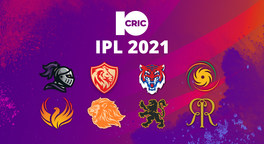New Delhi, NFAPost: The landscape of quantum capabilities for the space sector took centre stage at the recently concluded 2023 India Space Congress. The panel discussion, moderated by Reena Dayal, CEO of the Quantum Ecosystems and Technology Council of India, shed light on the revolutionary potential of quantum communications and cryptography in the satellite industry. The speakers delved into the various aspects of quantum technologies, emphasizing their role in enabling faster, more secure links and enhanced data protection.
Professor Urbasi Sinha, Head of the Quantum Information and Computing (QuiC) Lab at the Raman Research Institute, provided an in-depth analysis of quantum technologies, with a specific focus on entanglement and satellites. Sinha highlighted the significance of entanglement and satellite-based quantum communication as vital components within the space sector.
Addressing the critical issue of cybersecurity in the era of quantum computing, Sinha expressed concerns about the rapid growth of computational resources. She pointed out that what is considered a hard problem today could be solved through brute force attacks tomorrow. Sinha emphasized the need for Quantum Cryptography, which ensures security based on the laws of nature rather than the mathematical complexity of a problem. This approach guarantees future security irrespective of advances in computational power, algorithms, or technology.
Regarding the role of satellites, Sinha emphasized their importance in bridging the gap between ground-based quantum networks. Short-range connections facilitated by citywide optical fibres were identified as the way forward for efficient quantum communication.
Pankaj Kumar Gupta, Head of the Quantum Electronics and Photonics Division (QEPD) at the Indian Space Research Organisation (ISRO), acknowledged that quantum payload is a nascent domain. He highlighted the requirement for defining key technologies needed to build these payloads. Gupta further noted that quantum technology is maturing and becoming increasingly applicable to the space industry. He encouraged startups to seize the opportunities within the quantum field, emphasizing that despite the high entry barrier, first movers stand to establish successful organizations and enhance India’s overall quantum capabilities.
Dr. Rohini Srivasthava, National Technology Officer at Microsoft, spoke about the company’s role as a natural partner for satellite companies worldwide. With its global fibre networks and data centres, Microsoft offers a robust platform in the form of Azure. The Azure platform enables the utilization of various types of data, including satellite imagery, while facilitating conversational-style data analysis. Dr. Srivasthava stressed the insatiable demand for compute cycles, especially in the realm of quantum computing, which represents the next paradigm in computational technology.
Elaborating on Microsoft’s approach to quantum technologies, Dr. Srivasthava explained that their strategy involves integrating quantum computers with existing machines, datasets, and computers. The goal is to ensure a full-stack approach, enabling seamless interoperability between quantum and classical computing systems. Microsoft is proactively developing third-party data and APIs to facilitate better integration once quantum computers become readily available.
The panel discussion at the 2023 India Space Congress showcased the immense potential of quantum communications and cryptography for the satellite industry. As quantum technologies continue to advance, they are poised to meet the escalating demand for secure and efficient communication in space. With visionary leaders and organizations at the forefront of this revolution, the integration of quantum capabilities in the satellite sector promises to unlock new horizons and reshape the future of space-based technologies.





